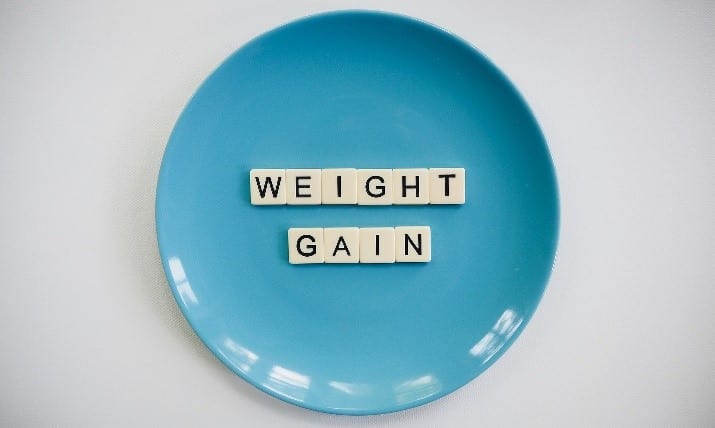A simple Google search will yield countless results regarding COVID-19 and weight. In fact, the #1 result for the search is the phone number for the National Eating Disorders Association. Frustrations range from weight gain to slow weight loss progress to irritation with the jokes about gaining the “COVID 19” or “quarantine 15.”
However, while the average person may be backsliding on their diet, COVID-19 poses a much greater challenge for individuals with eating disorders. Officials at the NEDA Helpline said their chat queries increased 83 percent between April 2019 and April 2020.
To make matter sworse, many states have issued stay-at-home orders. This isolation is the perfect environment for eating disorders. Read on to find out how to prevent this.
COVID-19 and Eating Disorder Triggers
Social isolation and anxiety combined with perceived food shortages can trigger unhealthy emotional eating habits. Eating disorder helplines and doctors specializing in eating disorders alike are reporting a massive increase in the number of calls and appointments they’re receiving and scheduling. Managing an eating disorder without the added stress of a pandemic is challenging as it is. With COVID-19, recovery is even more difficult to achieve and sustain.
Eating Disorders and Anxiety
More often than not, patients with eating disorders suffer from anxiety. The eating disorder manifests as a means of control. When the individual feels like their life is spiraling, deciding when and how they eat can give them a sense of control. With COVID-19, many people feel like they’ve lost control of their life and wellbeing with so many unknowns about the virus. For someone with an eating disorder, the pandemic can trigger unhealthy ways to cope with this loss of agency.
Eating Disorders and Food Scarcity
Between panic shopping and supply chain problems, grocery stores often have at least one empty shelf. This perceived lack of food can trigger unhealthy behaviors in individuals with anorexia as well as those who binge eat. Individuals with anorexia may avoid buying food because of concerns that there won’t be enough food for someone else they deem more deserving. Discovering their safe foods are out of stock can also trigger unhealthy coping mechanisms. For individuals who binge eat, hoarding food can be problematic. While many people are stocking up to avoid frequent grocery trips, having excess food can present the temptation to binge eat.
Eating Disorders and Isolation
Individuals struggling with an eating disorder typically isolate themselves to conceal their food rituals and behaviors. They’re adept at secrecy and stay at home orders can entice many to slip back into old habits. While the average person is struggling with isolation, people with eating disorders are struggling to maintain a healthy relationship with food. Guilt and feelings of unworthiness plague them when they experience a setback. Combine that with social distancing, and many won’t reach out for support.
Increased Risk from COVID-19
The biggest concern for individuals with an eating disorder is what their risk profile looks like should they contract the virus. Several factors make individuals with eating disorders more susceptible to severe cases of COVID-19:
- Low body weight. Individuals suffering from anorexia are often underweight and may not have the muscle tone to cough effectively to expel secretions from their lungs. They’re also less likely to develop fevers, which can prevent an accurate diagnosis and treatment. Compounding the problem, many anorexic individuals are malnourished and their organs will further deteriorate while combating an illness. Anorexic patients that have a normal or close-to-normal body weight can still suffer from these complications as well as they typically have the same systemic dysfunctions as underweight individuals with anorexia.
- Dehydration. Bulimic individuals who chronically purge are often dehydrated with low levels of electrolytes, potassium, and magnesium. If they contract COVID-19 in this state, they are at increased risk for respiratory and cardiac complications.
- Inaccurate snap judgments. When doctors and nurses triage patients, the person’s outer appearance can sway their judgment. Medical providers may assume that an individual who looks healthy on the outside is healthy on the inside and not realize there are several comorbidities at play.
Weight plays a significant role in COVID-19 outcomes. Overweight individuals and people with eating disorders alike are at an increased risk of developing severe symptoms from COVID-19. Contact us to learn more about maintaining a healthy weight for better physical and mental wellness.





